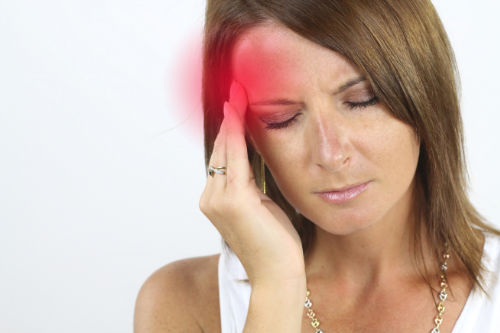Migraine

Migraine
A migraine can cause severe throbbing pain or a pulsing sensation, usually on one side of the head. It’s often accompanied by nausea, vomiting, and extreme sensitivity to light and sound. Migraine attacks can last for hours to days, and the pain can be so severe that it interferes with your daily activities.
For some people, a warning symptom known as an aura occurs before or with the headache. An aura can include visual disturbances, such as flashes of light or blind spots, or other disturbances, such as tingling on one side of the face or in an arm or leg and difficulty speaking.
Medications can help prevent some migraines and make them less painful. The right medicines, combined with self-help remedies and lifestyle changes, might help.
Symptoms
Migraines, which often begin in childhood, adolescence or early adulthood, can progress through four stages: prodrome, aura, attack and post-drome. Not everyone who has migraines goes through all stages.
Causes
Though migraine causes aren’t fully understood, genetics and environmental factors appear to play a role.
Changes in the brainstem and its interactions with the trigeminal nerve, a major pain pathway, might be involved. So might imbalances in brain chemicals — including serotonin, which helps regulate pain in your nervous system.
Researchers are studying the role of serotonin in migraines. Other neurotransmitters play a role in the pain of migraine, including calcitonin gene-related peptide (CGRP).
Lack of sleep, staying hungry for long hours, anxiety, excessive stress, certain medications and upcoming menses can all trigger an attack of migraine in a person. Modern approach in the treatment of Migraine involves curbing the pain with painkillers during an acute episode.
Homoeopathic system of medicine provides excellent results in the treatment of Migraine. Homoeopathy not only excels in controlling the acute attack of Migraine but also is also highly useful in preventing future attacks by reducing recurrence.
Homoeopathic medications are specifically prescribed after enquiring all the details in a particular case including a person’s physical-mental-emotional makeup, factors that trigger an attack as well as things that relieve the attack. The remedy thus selected is the one that specifically suits the patient’s needs.
